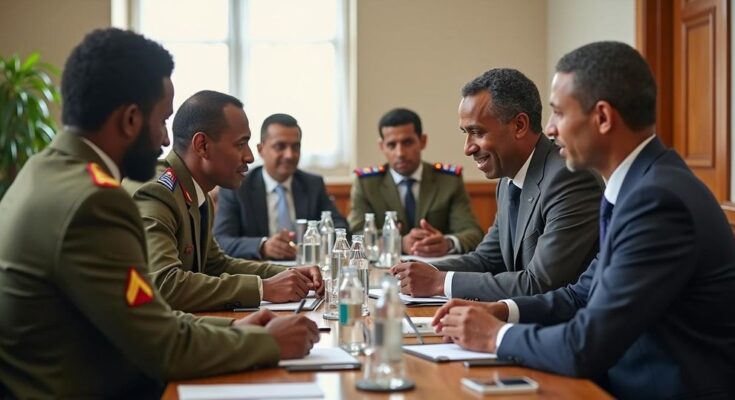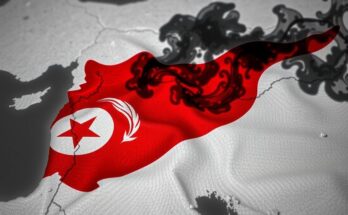The presidents of Somalia, Eritrea, and Egypt convened in Asmara to strengthen security ties and improve regional stability amid challenges posed by al-Shabab. The leaders committed to enhancing cooperation to combat terrorism, respect territorial integrity, and coordinate efforts against external interference. Somalia’s security partnership with Egypt and underlying tensions with Ethiopia add complexities to this newly forged alliance.
In a significant development for regional security, the leaders of Somalia, Eritrea, and Egypt convened in Asmara to forge stronger security ties amid ongoing challenges in the Horn of Africa, particularly concerning the militant group al-Shabab. The summit, chaired by Eritrean President Isaias Afwerki, included Egyptian President Abdel Fattah al-Sisi and Somali President Hassan Sheikh Mohamud. As per the statement released by the Eritrean Information Ministry, the trio pledged to enhance cooperation aimed at attaining regional stability, firmly emphasizing their commitment to respecting the sovereignty, independence, and territorial integrity of their nations. Concurrently, they underscored the menace of external interference in local affairs, vowing to coordinate efforts to foster stability and facilitate sustainable development. Addressing the precarious security situation in Somalia, the leaders resolved to intensify collaborative measures to combat terrorism in all its manifestations, safeguarding both land and maritime boundaries to maintain territorial integrity. This intensified partnership is poised to have repercussions for Ethiopia, which has deployed thousands of troops in Somalia against al-Qaeda-linked factions while dealing with tensions regarding Mogadishu’s independence aspirations for Somaliland, an unrecognized breakaway region. In anticipation of Ethiopia’s growing influence, Somalia previously entered into a substantial military pact with Egypt, which included a commitment from Cairo to provide troops for a new African Union initiative targeted at dismantling al-Shabab. Furthermore, the longstanding dispute between Egypt and Ethiopia over the dam project on the Nile persists as an undercurrent to these evolving alliances. Eritrea and Ethiopia’s past conflicts are also relevant here, with Eritrean forces backing Ethiopia during the recent Tigray conflict. Analysts have noted Eritrea’s dissatisfaction stemming from its exclusion from peace negotiations related to the Tigray situation. Nonetheless, Ethiopia’s Foreign Ministry spokesperson Nebiat Getachew asserted that relations with Eritrea are currently characterized by “peaceful” engagement and “good neighbourliness.”
The geopolitical dynamics in the Horn of Africa have been increasingly complicated by internal and external conflicts, particularly with the presence of militant groups such as al-Shabab. Somalia has been under pressure to stabilize its security situation while grappling with rising insurgent threats. Eritrea and Egypt, as neighboring nations, have vested interests in regional stability as it directly affects their security and economic prospects. The recent summit reflects their collective response to ongoing security challenges and their intent to establish a cooperative front against terrorism and prevent foreign interference. The historical context of tensions with Ethiopia further adds to the complexity of the regional landscape.
The tripartite agreement among Somalia, Eritrea, and Egypt highlights a strategic response to ongoing security challenges in the Horn of Africa. By committing to bolster security cooperation, the leaders aim to confront terrorism effectively and safeguard regional stability. However, the implications of this alliance may exacerbate existing tensions with Ethiopia, underscoring the intricate and multifaceted geopolitical environment in the region as nations strive to navigate their security interests while fostering development and stability.
Original Source: www.aljazeera.com




